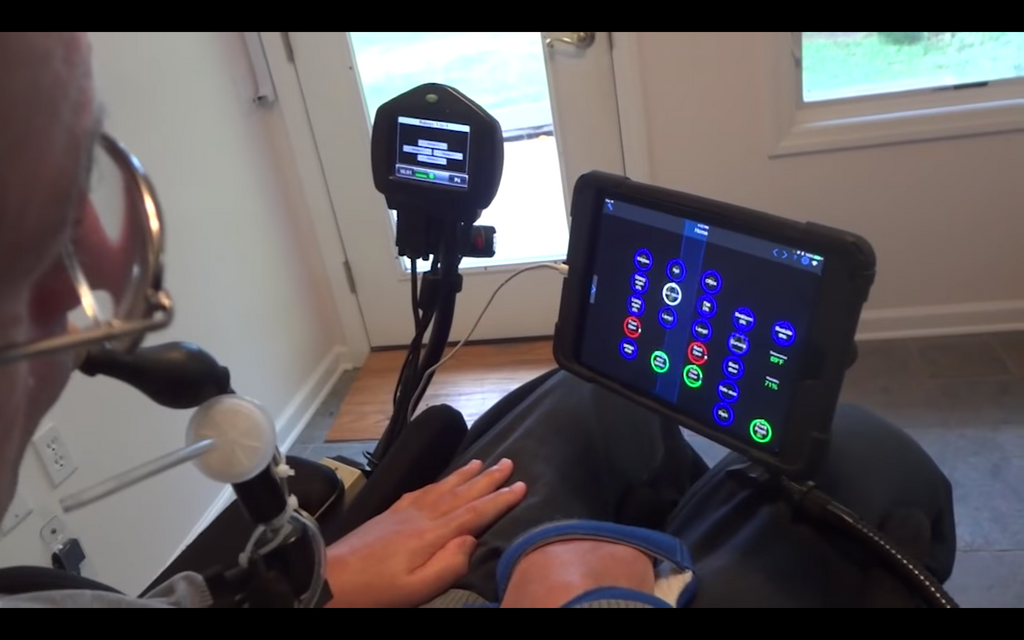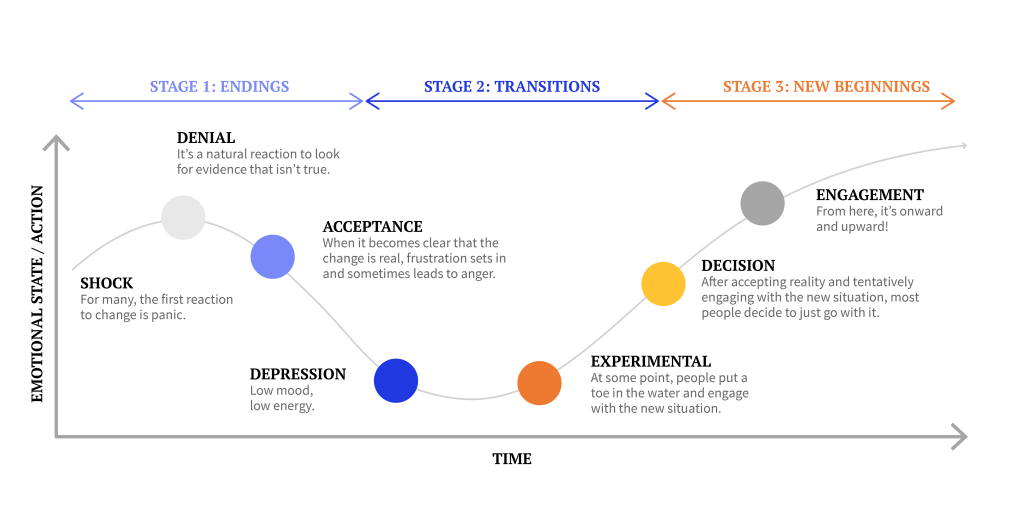Adaptive health apps are revolutionizing the landscape of personalized healthcare technology, providing users with tailored support to manage their health effectively. These innovative digital health solutions harness the power of artificial intelligence and reinforcement learning in healthcare to create unique experiences for individuals, particularly for those undergoing challenges like cancer recovery. By utilizing just-in-time adaptive interventions, these apps can deliver real-time, relevant guidance that significantly enhances user engagement and compliance with health protocols. Imagine having a health coach in your pocket, actively learning from your interactions and adjusting advice to fit your needs precisely. As such, adaptive health apps not only empower users but also foster a healthier relationship with health management through a continual process of customization and support.
Personalized wellness applications, often referred to as adaptive health tools, represent a cutting-edge advancement in digital health and patient management. These smart solutions leverage algorithms and machine learning techniques to cater specifically to individual health journeys, particularly aiding those facing substantial health challenges. With features that resonate with the principles of AI health coaching, these tools can engage users effectively by adjusting recommendations based on real-time data and prior user interactions. Furthermore, these apps exemplify the future of healthcare by integrating a holistic approach to support, ensuring that users—especially those in delicate situations such as cancer treatment—receive the most relevant assistance possible. As we move towards a more user-centric model in healthcare, these adaptive technologies are at the forefront of enhancing patient outcomes and experiences.
Adaptive Health Apps Revolutionizing Cancer Care
Adaptive health apps are changing the landscape of personalized healthcare technology, particularly for cancer patients undergoing treatment. These apps leverage sophisticated algorithms, including reinforcement learning, to provide tailored support that evolves with the user’s needs. For instance, Susan Murphy and her team are developing mobile applications designed specifically for stem cell transplant patients that offer real-time motivation and updates on medication adherence. This approach acknowledges the complexities of cancer recovery and is aimed at minimizing the overwhelming challenges patients face, ensuring that they receive the right kind of support whenever they need it.
One significant advantage of adaptive health apps is their ability to personalize the user experience. Unlike traditional health applications that provide generic advice, these innovative solutions apply behavioral science principles to encourage consistency in medication regimens and overall health management. By integrating features such as social support networks and interactive games, these apps foster collaboration between patients and caregivers, making health management a communal effort. The effectiveness of these personalized features could lead to better health outcomes and make every user’s journey a little easier.
The Role of Reinforcement Learning in Healthcare
Reinforcement learning is a game-changing technology in the healthcare sector, particularly in the realm of digital health solutions. This machine learning technique allows applications to learn from user interactions and adapt their responses accordingly. For example, the Murphy lab’s algorithm for cancer patients adjusts medication reminders based on when users are most responsive. By personalizing the timing and content of reminders, these applications seek to enhance user engagement and adherence, addressing a major barrier in healthcare management where traditional methods often fall short.
This adaptive approach not only improves treatment adherence but also enriches the overall user experience. By continuously learning from the user’s behaviors and preferences, reinforcement learning algorithms can create a truly tailored health management tool. For patients dealing with chronic illnesses, the personalization available through these technologies marks a significant shift towards more effective and compassionate care. As digital health solutions become increasingly sophisticated, the potential for AI health coaching to transform patient outcomes grows exponentially.
Personalized Healthcare Technology: Enhancing Patient Engagement
Personalized healthcare technology is reshaping how patients interact with their treatment protocols. By leveraging data analytics and patient feedback, developers can craft tools that not only track health metrics but also engage patients meaningfully. The apps emerging from Susan Murphy’s lab are examples of how personalized health applications can adapt in real-time, making them more effective at encouraging healthy behaviors than standard interventions. Users receive updates and encouragement that is context-sensitive, significantly enhancing their motivation to adhere to treatment.
Furthermore, such technology fosters independence among patients, enabling them to manage their health proactively. This empowerment, combined with real-time support, helps patients navigate their treatment journeys with greater confidence. The growing emphasis on patient engagement through personalized healthcare technology signifies a shift towards a more user-centered approach in the medical field, where patients are not just passive recipients of treatment but active participants in their recovery and well-being.
AI Health Coaching: The Future of Support Systems
AI health coaching represents a revolutionary approach to patient support, particularly for those managing complex health issues like cancer. Today’s adaptive health apps, powered by artificial intelligence, mimic the functions of a personal coach by delivering customized health advice and encouragement. This real-time support can motivate patients to stick with their medication regimens or make healthier lifestyle choices, significantly improving treatment outcomes. As algorithms improve, the capability of these digital coaches to influence behavior will likely increase, creating a more profound impact on patient health.
Moreover, AI health coaching programs utilize ongoing data collection to refine their strategies, leading to a highly personalized experience for users. By analyzing individual behavior patterns, these applications can forecast and respond to health challenges before they arise. This proactivity establishes a safety net for patients, potentially reducing hospital readmissions and enhancing overall quality of life. With continued advancements in AI, health coaching will evolve to meet diverse patient needs, solidifying its role as an integral component of modern healthcare.
Digital Health Solutions for Enhanced Medication Adherence
Digital health solutions are becoming indispensable in the battle against medication non-adherence, especially among cancer patients. With studies indicating that a significant number of patients struggle to follow their prescribed drug regimens, the integration of technology provides a viable solution. Adaptive health apps created by Murphy’s lab, for example, are specifically designed to address these challenges by personalizing reminders and support based on user responses. This tailored approach not only helps ensure that patients take their medications but also gives them tools to engage with their health actively.
These solutions often include features that promote engagement and accountability, such as gamification elements or social sharing options. For instance, encouraging patients to share their progress with caregivers or within supportive communities can lead to better adherence rates. As digital health technologies continue to develop, they are likely to incorporate even more advanced features designed to meet the unique needs of cancer patients, ultimately leading to enhanced care delivery and improved health outcomes.
Understanding the Importance of Continuous Learning in Healthcare Apps
The critical success factor for adaptive health apps lies in their ability to learn continuously and evolve over time. Reinforcement learning techniques enable these applications to not only respond to user behaviors but also to adapt their strategies based on user engagement and success rates. This continuous loop of data-driven adaptation means that each user interacts with an application designed specifically for their unique journey, making the experience much more effective and personalized.
Such continuous learning is vital, especially in dynamic healthcare environments where patients’ needs can change rapidly. For cancer patients, for instance, managing treatment complications and side effects requires timely and appropriate interventions. Applications that can learn from past interactions and adjust their support patterns accordingly are significantly better equipped to help patients navigate the complexities of their care, making them invaluable tools in modern healthcare.
Collaborative Approaches in Designing Healthcare Technology
Collaborative efforts between technical experts, healthcare professionals, and patients themselves are crucial in developing effective healthcare technology. The work being done at Murphy’s lab exemplifies this interdisciplinary approach, bringing together software engineers, clinicians, and behavioral scientists to design apps that meet the specific needs of cancer patients and their caregivers. By engaging a diverse team, these projects ensure that the resulting apps are not only technologically sound but also clinically relevant and user-friendly.
Such multidisciplinary collaboration is essential to understanding the complexities of patient behaviors and the effectiveness of interventions. Stakeholder input allows for the development of features that cater specifically to the motivations and challenges faced by patients. When healthcare technology is designed with collaborative insights, the likelihood of achieving better engagement and adherence rates among users increases significantly, thereby enhancing overall patient care.
The Impact of Family Involvement in Health Management Apps
Family involvement plays a significant role in the efficacy of health management applications, especially for users dealing with chronic conditions like cancer. Many patients rely on family members for support, and apps that facilitate connection between patients and caregivers can greatly improve health outcomes. Susan Murphy’s projects aim to integrate family dynamics into the design of their apps, allowing caregivers to share insights and offer encouragement alongside the app-generated support.
Incorporating family support systems into health management apps fosters a more collaborative environment for healing. For patients facing the challenges of treatment, having a trusted support network that actively engages in their care creates an atmosphere of accountability. This shared responsibility not only enhances adherence to treatment but also promotes emotional well-being, as patients feel less isolated and more connected to their loved ones during their journey.
Future Directions in Cancer Support Apps
The future of cancer support apps is bright, as continuous advancements in artificial intelligence and user-centered design principles create endless possibilities for new features and improvements. As researchers fine-tune algorithms and user experience designs, the potential for these applications to provide unprecedented support grows. Innovations may include more interactive elements, advanced data analytics to predict patient needs, and expanded social networking features that forge stronger community ties.
Ultimately, the direction of cancer support apps will hinge on their ability to adapt and respond to the evolving needs of patients. Whether through personalized coaching, enhanced communication tools, or integrating emerging health technologies, the core mission remains the same: to empower patients and support them through their unique challenges. As technology continues to advance, the goal of providing tailored, effective support to those battling cancer will remain at the forefront of healthcare innovation.
Frequently Asked Questions
What are adaptive health apps and how do they work?
Adaptive health apps are digital health solutions that utilize advanced algorithms, including reinforcement learning in healthcare, to provide personalized support for users. These apps dynamically adjust their interventions based on real-time data about a user’s preferences and needs, enhancing user engagement and health outcomes.
How do cancer support apps utilize adaptive technology?
Cancer support apps leverage adaptive health technologies to offer tailored interventions for patients. They use data-driven algorithms to remind patients about medication schedules, track side effects, and even provide emotional support, helping users maintain adherence to their treatment plans during recovery.
What role does reinforcement learning play in healthcare apps?
Reinforcement learning in healthcare apps enables the software to learn from user interactions and outcomes continuously. This technology allows adaptive health apps to personalize their messaging and recommendations, ensuring that interventions are timely and relevant, which significantly improves user compliance and satisfaction.
Can personalized healthcare technology improve patient outcomes?
Yes, personalized healthcare technology, including adaptive health apps, has shown promise in improving patient outcomes. By providing individualized support and dynamically adjusting to each patient’s needs, these apps increase adherence to treatment protocols and foster better overall health management.
What is AI health coaching and how does it differ from traditional coaching?
AI health coaching refers to the use of artificial intelligence within adaptive health apps to guide users toward their health goals. Unlike traditional coaching that relies on human interaction, AI health coaching offers 24/7 accessibility and can tailor advice based on real-time data, making it a cost-effective and less intimidating option for many users.
How can digital health solutions assist family caregivers?
Digital health solutions, such as adaptive health apps, can significantly support family caregivers by providing them with tools to manage medication schedules, receive reminders for care tasks, and facilitate communication with patients. This assists caregivers in offering effective support while reducing their stress during challenging treatment processes.
What innovative features do adaptive health apps provide for chronic illness management?
Innovative features of adaptive health apps for chronic illness management include personalized medication reminders, real-time adaption of strategies based on user behavior, gamification elements for engagement, and the ability to connect users with their support networks, thereby enhancing adherence to treatment and improving overall health outcomes.
How are adaptive health apps changing the landscape of healthcare?
Adaptive health apps are revolutionizing healthcare by providing personalized, data-driven interventions that exceed traditional one-size-fits-all approaches. By utilizing advanced algorithms, these apps help address individual health needs efficiently, promoting better adherence and engagement among patients.
| Key Points | Description |
|---|---|
| Adaptive Health Apps | Mobile applications that personalize health interventions for users based on their unique circumstances and needs. |
| Reinforcement Learning Algorithms | Algorithms that learn from user behavior to provide tailored recommendations and interventions over time. |
| Just-in-Time Adaptive Intervention | An approach where apps provide support at crucial moments, adapting to the user’s changing needs. |
| Collaboration with Healthcare Professionals | Partnerships with clinicians and behavioral scientists ensure that apps address real health management challenges. |
| Current Projects | Include apps for cancer patients, cannabis users, and improving tooth brushing habits, with ongoing research and trials. |
| Goal of Technology | To act as practical, accessible health coaches, making support available to those unable or unwilling to access traditional coaching. |
Summary
Adaptive health apps are revolutionizing the way individuals manage their healthcare by providing tailored support and interventions. These innovative applications, developed using advanced algorithms, cater specifically to the needs of users, such as cancer patients or those seeking to reduce cannabis use. By leveraging real-time data and personalization techniques, adaptive health apps not only improve adherence to treatment protocols but also enhance the overall health management experience. The future of healthcare may very well rely on these digital tools, supporting patients in ways that traditional methods cannot.



